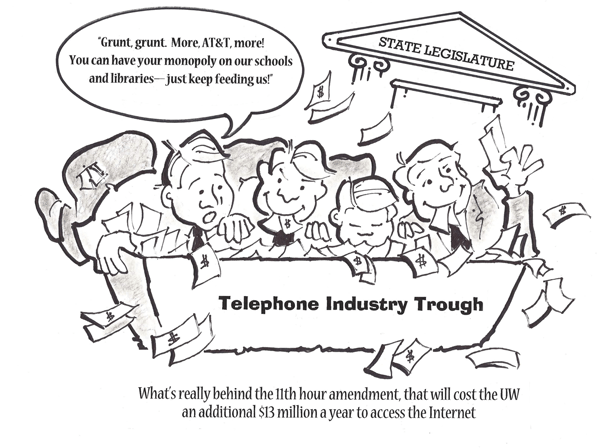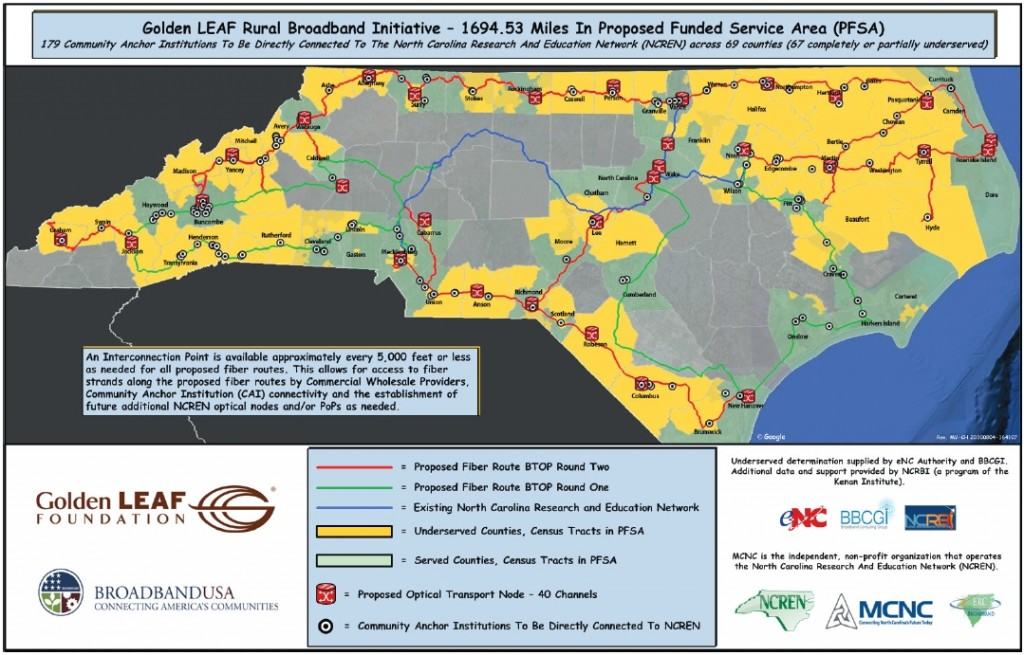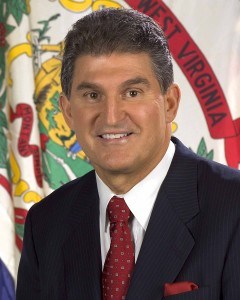 For the first time, a state has announced it is returning stimulus funding made available by the Obama Administration to improve broadband service.
For the first time, a state has announced it is returning stimulus funding made available by the Obama Administration to improve broadband service.
Wisconsin governor Scott Walker said thanks, but no thanks to the U.S. Department of Congress, returning $23 million in broadband stimulus funds allocated to build a fiber-optic “middle mile” network to 380 Wisconsin communities — including 385 libraries. 82 schools, and numerous public safety offices in rural areas.
The decision to reject the money came in concert with a public relations push by Republicans in Washington this week calling on governors to curtail “wasteful spending” and reject stimulus projects. Walker’s timing of the rejection has political watchers suspicious of an orchestrated campaign by state and national Republicans to call out the president’s economic programs. Critics of the Walker administration are also accusing the governor of doing AT&T’s bidding in rejecting the public money.
AT&T has plenty of good friends in the state government, which has historically granted most of AT&T’s legislative checklist in the past ten years. Wisconsin has taken a “hands-off” approach to cable and phone companies. Statewide video franchising makes AT&T’s efforts to expand its U-verse IPTV system easy, without having to answer to local communities. Rural commitments to landline phone service have also been eased for AT&T, thanks to a large lobbying effort. Publicly-owned municipal broadband networks open to ordinary consumers are few and far between in the state, thanks to heavy opposition from the phone giant.
Walker’s track record of being extremely pro-business, and the fact he accepted more than $20,000 in campaign contributions from AT&T made it easy to claim Walker was delivering another favor to the state’s largest phone company.
But is Walker’s rejection of the state’s broadband stimulus money a help or a hindrance to AT&T? Is Wisconsin’s governor correct when he says federal government bureaucracy was at fault?
Stop the Cap! decided to investigate.
BadgerNet: An Introduction
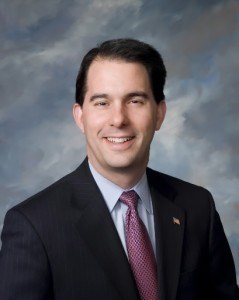
Governor Walker
Wisconsin’s institutional broadband network, which delivers broadband connections to large educational facilities, public libraries, and government users, is named BadgerNet — which makes perfect sense for the Badger State. State law limits who can utilize the service — ordinary residential customers cannot — so the network is not well known outside of the circle of groups authorized to access it.
Currently BadgerNet largely exists as an extension of AT&T’s network in Wisconsin. That is a critical point. Had BadgerNet initially been created as an independent entity, today’s stimulus rejection might never have happened. Wisconsin, no doubt at the behest of AT&T, built its network with a leasing arrangement, signing five-year term contracts to rent space on AT&T’s fiber-copper wire facilities. That kept initial construction costs down, and allows the state to theoretically “walk away” from part of the network if something better comes along — a highly unlikely proposition in a state like Wisconsin. It’s not an economic leader and has large numbers of rural counties competitors would be unlikely to serve.
Wisconsin Republicans call this arrangement with AT&T a “public-private partnership.” Democrats call it a giveaway to AT&T, and BadgerNet officials call it one big fat headache.

Wisconsin's BadgerNet
Obama’s Broadband Stimulus

President Obama
When the Obama Administration unveiled its broadband stimulus program, it not only promised to deliver new broadband projects, but also the employment prospects for an army of consultants hired to navigate through the terms and conditions that always accompany money from Washington.
The control measures established by the Department of Commerce, which administers the money from the federal government, are designed to protect against waste, fraud, and abuse. Unfortunately, they are often more impenetrable than software licensing agreements. If you want the money, you must follow every requirement, or risk forfeiting it back to the government.
Wisconsin’s proposal to expand BadgerNet with broadband stimulus funding would mean discarding slower speed data connections for super-fast fiber optics. Some 203 new miles of optical fiber were to be laid, serving 385 school districts, 74 libraries, and eight community colleges.
The federal government liked what it saw and awarded nearly $24 million in funds to launch the “middle-mile” project. Along with the virtual check came pages of fine print — rules about how the money could and could not be spent.
As state officials and BadgerNet 2.0’s planners poured over the documents, they began reaching for the Tylenol. AT&T’s ownership interests in the existing network turned out to be a major problem.
The ‘AT&T Problem’
 “We, as a state, do not own our network. We purchase a managed service through the BadgerNet contract,” Diane Kohn, acting administrator for the Division of Enterprise Technology in the Department of Administration told the Milwaukee Journal Sentinel.
“We, as a state, do not own our network. We purchase a managed service through the BadgerNet contract,” Diane Kohn, acting administrator for the Division of Enterprise Technology in the Department of Administration told the Milwaukee Journal Sentinel.
Most grant recipients either plan to build a new network from the ground up or build on an existing non-profit network. Neither is the case in Wisconsin because of AT&T’s involvement.
“From a federal perspective, it was like we were some kind of unknown start-up firm with all of these risks attached to it,” said Robert Bocher, an information technology consultant for the Department of Public Instruction. “In fact, our network has been around since the mid-1990s.”
But it got even more difficult when BadgerNet discovered the federal government requires new fiber networks built with stimulus funds to be utilized for at least 20 years. This important control measure protects taxpayers from fronting the costs to build state of the art fiber networks, only to be later sold off to private interests or discarded as a budget cutting move.
Wisconsin’s agreement with AT&T runs for five years, not 20. Additionally, since AT&T largely administers the infrastructure, much of the $23 million could have ended up going straight to AT&T to cover construction costs. BadgerNet lacks sufficient funding to completely sever ties with AT&T and build its own network, and Gov. Walker isn’t about the deliver the money required to start a new network from scratch.
BadgerNet learned a lesson most grant recipients discover after winning the money — spending it comes with plenty of wires attached, and none of them transport data.
The Davis-Bacon Act
A Depression-era law is also being blamed for supposedly creating major hurdles for broadband network construction. The 1931 Davis-Bacon Act was enacted to require public works projects be built at local prevailing wages. The Act became law after contractors began importing cheap labor (typically underpaid African-Americans from southern states) to work competitively bid public construction projects during the Roosevelt Administration.

Mikonowicz
Republicans currently suspect the Act of being little more than a union protection law, raising labor costs artificially and helping to bust budgets. Wisconsin Republican senator Ron Johnson used complications in a Sauk County broadband project to bash the Act, accusing it of being responsible for wasting taxpayer dollars.
David Mikonowicz, the utility superintendent for Reedsburg, complained the Act would require him to pay more than double his anticipated labor costs for a fiber project in the community. Mikonowicz claimed the Act didn’t provide a prevailing wage for fiber contractors, so he was forced to bid out the project at wages suitable for high voltage wiring projects — $40 an hour.
That false premise made it to the pages of the Journal Sentinel in an earlier piece — a bit of political theater to bash unions, the federal government, and play up local communities as the innocent victims of both.
Stop the Cap! had no problems finding a prevailing Davis-Bacon Act wage covering Sauk County fiber installers, so we are unsure why Mikonowicz could not:
Teledata System Installer/Technician $11.70-21.26/hr
Low voltage construction, installation, maintenance and removal of teledata facilities (voice, data, and video) including outside plant, telephone and data inside wire, interconnect, terminal equipment, central offices, PABX, fiber optic cable and equipment, micro waves, V-SAT, bypass, CATV, WAN (wide area networks), LAN (local area networks), and ISDN (integrated systems digital network)
The Loyal Opposition & Everyone Else
The loss of nearly two dozen million dollars in federal government money was catnip for the loyal opposition.

Rep. Pocan
State Rep. Mark Pocan (D-Madison) said Walker’s broadband money giveback was hurting the state.
“Not only is he turning away construction jobs that would have come with the federal grant to expand broadband fiber to schools and libraries across Wisconsin, but he’s closing off potential to business growth that comes with bridging the digital divide,” Pocan said. “What’s worse, the root of his decision wasn’t what was in the best interest of Wisconsin, rather the best interest of his big telecommunications campaign donors.”
Gov. Walker used the occasion to blame the federal government for unnecessary bureaucracy. Mike Huebsch, appointed by the governor to serve as secretary of the state Department of Administration, issued a memo warning if they didn’t return the money, state taxpayers could be on the hook for the entire amount if the federal government found the state didn’t comply with grant requirements.
Ordinary Wisconsin residents would never see improved broadband in their homes from the middle mile project, so much of their reaction comes from a reflexive dislike of the governor, taxes and spending, AT&T, or a combination of all three.
AT&T has kept quiet through the entire affair, only stating it wasn’t interested in becoming a formal grant recipient stuck with the federal government’s rules.
Republicans and “tea party” members are thrilled Wisconsin is a leader in throwing federal money for broadband, railways, and other public works projects back to Washington, in hopes it will set an example for the federal government to follow.
What Happens Next
The state says it is negotiating an extension of the existing AT&T contract for another five years, and points to advances in copper wire-delivered bandwidth and the fact AT&T already provides fiber connectivity for certain parts of BadgerNet.
While AT&T has been labeled the ultimate culprit for the broadband stimulus debacle, it’s not as guilty as some might think for these reasons:
- The initial failure of the state to own and operate its own network, instead of leasing access from AT&T;
- AT&T gets the money whether Wisconsin leases another five years of service from AT&T, or stimulus funding gets diverted to AT&T to bolster BadgerNet’s existing network;
- AT&T is sitting pretty whether it has a five year lease or a 20-year stimulus-mandated contract. In fact, AT&T could set its rates at today’s relatively high prices for network connectivity that Wisconsin would still be paying two decades from now.
That doesn’t mean AT&T is a good actor in Wisconsin. While the company has steered clear of this debate, its lobbyists continue to fight off any potential competition from community-owned networks that threaten to deliver service to residential and business customers. Few Big Telecom providers complain about institutional networks like BadgerNet, because heavy lobbying on their part several years ago won state laws that forever prohibit ordinary consumers from ever buying service from them.
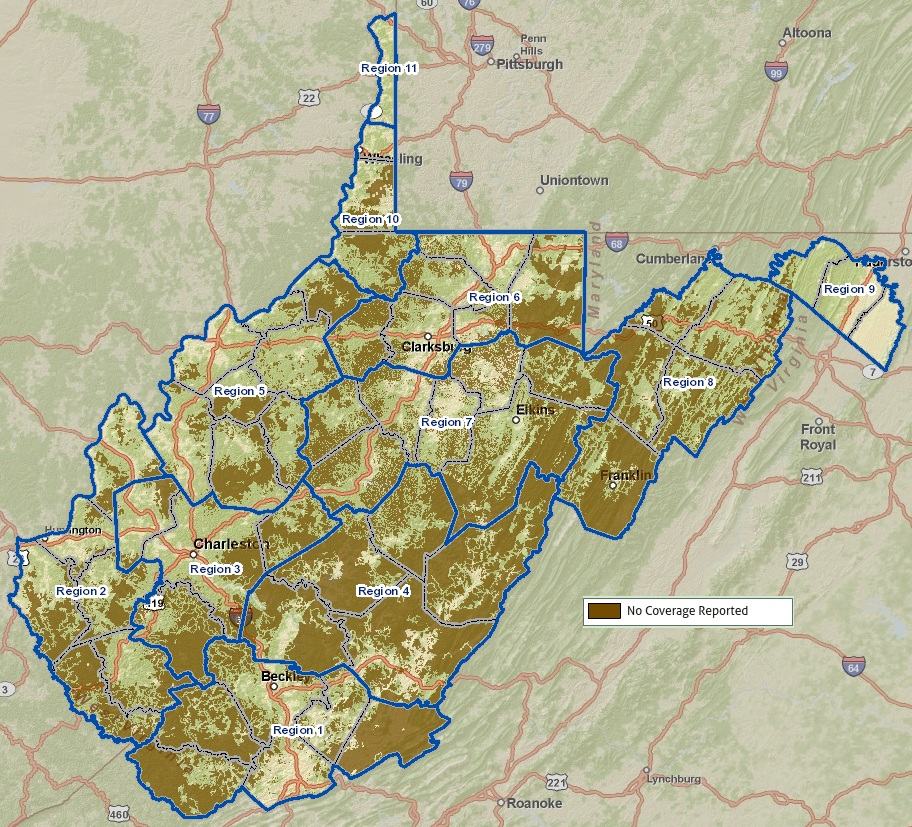
 Jimmy Gianato, the state’s homeland security chief, said his office recently identified 330 additional “replacement locations” — higher education facilities, schools, health departments and state-owned hospitals — that could be eligible for the project, according to the newspaper.
Jimmy Gianato, the state’s homeland security chief, said his office recently identified 330 additional “replacement locations” — higher education facilities, schools, health departments and state-owned hospitals — that could be eligible for the project, according to the newspaper.

 Subscribe
Subscribe
